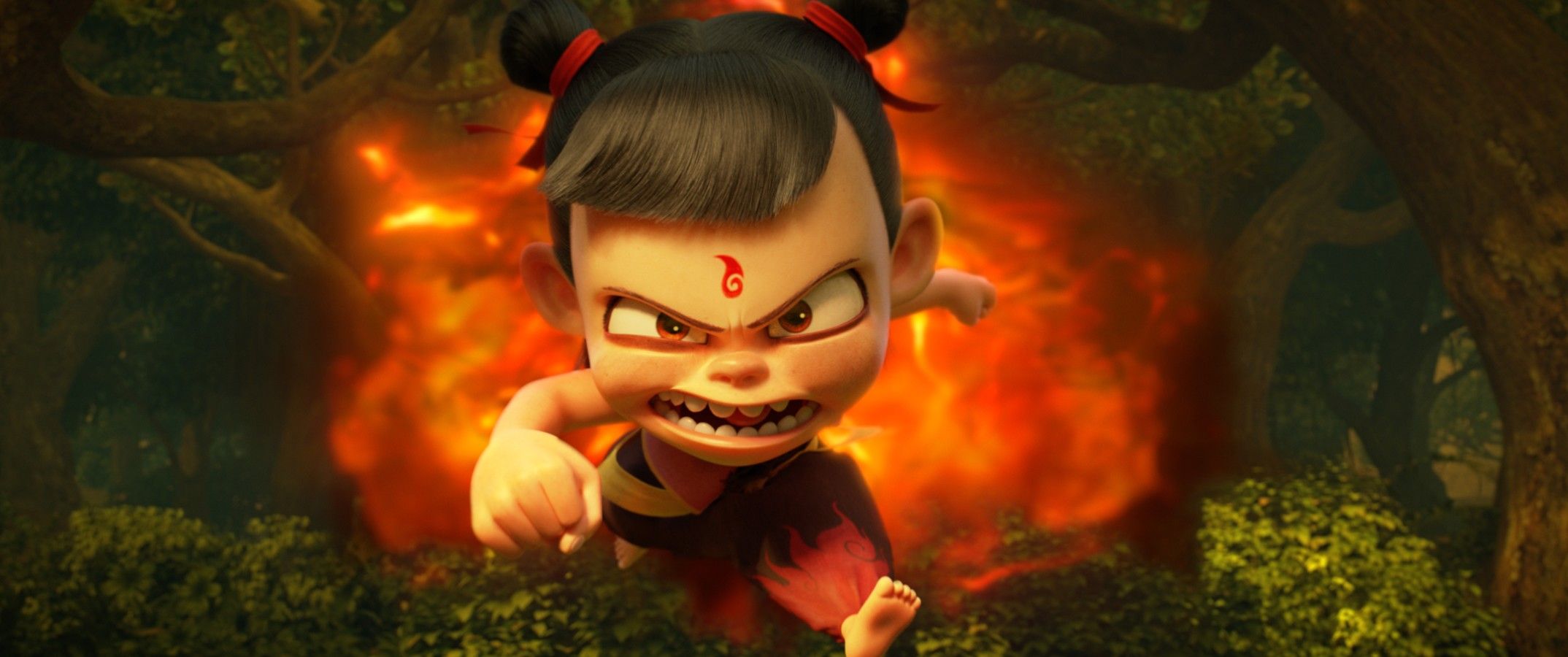Ne Zha 2 stands as 2025’s biggest box-office hit worldwide, though the bulk of its theatrical revenue so far has come from China. By giving it a wider Western release on Aug. 22, via an English dub featuring Michelle Yeoh, A24 is aiming to broaden the film’s reach and solidify its impact on the worldwide market. That will give a much bigger audience a chance to consider how different the hit sequel’s messages are from the original movie’s.
One of the first things that stood out when I first watched 2019’s Ne Zha (streaming on Peacock, and free on Tubi and the Roku Channel) was its subversive message about accepting who you are. The titular folk hero was born under a curse of destiny, as the reincarnation of a demon orb meant to bring destruction. His village treated him as a monster. That scorn shaped him into a defiant 3-year-old with the world’s biggest chip on his shoulder. Still, he resists the path of darkness and fights to become the hero his parents and mentor believed in.
Stepping out of the theater after Ne Zha 2, I was struck by how the sequel evolves that theme. Instead of just acceptance, it pushes further into the idea of full self-ownership: embracing every flaw, every strength, and every part of yourself without compromise.
[Ed. note: Broad spoilers ahead for Ne Zha 2.]
Ne Zha is on the path toward righteousness after the first movie, but he’s still a crude, vengeful trickster — the same rotten kid from the original movie is present in the sequel. And although writer-director Jiao Zi was pretty clever about tying the original film’s subversive humor (like the big guy with the high-pitched scream, or Ne Zha’s fake-out jokes) to his narrative twists (like the “evil” Ne Zha being born in a loving home, while his better half, Ao Bing, is born to the opposing Dragon King, Ao Guang), he makes his jokes in Ne Zha 2 just as juvenile as Ne Zha himself.
The sequel amps up the fart, pee, and vomit gags, which mostly involve Ne Zha’s bodily functions and erratic behavior. All this contrasts sharply with his pursuit of immortality, a quest that requires him to conceal both his demonic origins and the fact that he’s sharing a body with Ao Bing after the events of the first film, all while completing three tasks assigned by heavenly emissary Wuliang. But he still can’t help but be himself, which almost ruins his scheming several times throughout the sequel. When he first meets his immortal brothers, he’s afraid of what they might think of him, and allows the more demure Ao Bing to take over their shared body to impress them. Toward the end of the movie, he laments missing the chance to meet his brothers outright, especially after Ao Bing informs him that they have loved and will always love him, regardless of who he is.
That message resonates most through Shen Gongbao, the stammering lackey from the first film, who takes on a much larger role in the sequel, with an arc about not compromising who he is to his younger brother, Shen Xiaobao. The two brothers reunite early in the film, and Xiaobao’s presence reveals Gongbao’s softer side: He’s a family man who cares deeply for his little brother, and tries to shelter him from Gongbao’s villainous deeds. Xiaobao, meanwhile, idolizes his older brother and aspires to be just like him. He also shows a sense of honor that shames Gongbao, and pushes him to be kinder — and eventually, to fight for the same village he once commanded Ao Bing to destroy.
Ne Zha and Gongbao ultimately arrive at the same lesson from different paths: It’s better to live authentically than to mold yourself into what others expect. Gongbao, ashamed of his past, allowed the falsehoods of his supposed heroism to stand, but redeems himself in the end by upholding his principles and becoming the hero Ne Zha’s father once claimed him to be. Ne Zha, meanwhile, learns he should never have tried to be something he isn’t. The ultimate villain in Ne Zha 2 embodies hypocrisy. His power is built on lies and deception, proving that truth, not pretense, is the stronger path. In a way, Jiao Zi leaning all the way into his fart, vomit, and piss jokes for this sequel is a mission statement: He’s owning his artistic tastes with full conviction, just as Ne Zha learns to fully embrace every part of who he is.


